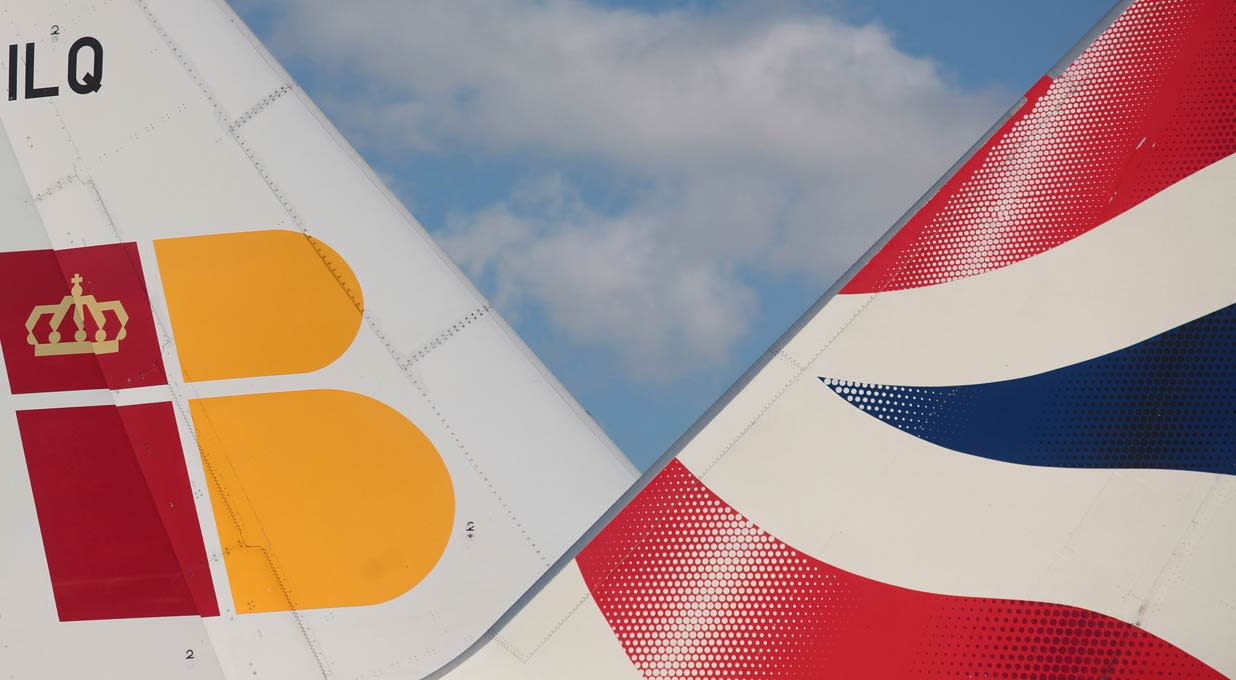IAG’s third-quarter revenue rose 7.9% to €9.3bn. This was largely due to increased passenger capacity and planes being more full on average.
Operating profit grew 15.4% to €2.0bn, which was well ahead of market expectations. This was driven by the increased revenue and lower fuel costs.
Net debt was €6.2bn, down from €9.2bn at the beginning of the year.
No full-year profit guidance was given, but capacity is set to grow by 5% in the fourth quarter.
A new €350mn share buyback programme has been announced and is expected to be completed by the end of February 2025.
The shares rose 6.3% in early trading.
Our view
British Airways owner IAG delivered strong profit growth in the third quarter, well ahead of market expectations. This beat gave management the confidence to announce a new €350mn share buyback programme, which was well-received by markets on the day.
Turning to everyday operations, we’re pleased to see that planes are flying with more passengers on board, despite the group’s increased capacity. That shows there’s still strong demand for the group’s routes, even though there’s considerable pressure on consumers’ incomes.
Given the high fixed costs associated with flying planes, squeezing more passengers onto each flight increases profitability. Easing fuel costs and a tight grip on everyday operating costs have also helped the bottom line. But keep in mind that external shocks could send fuel prices higher again. That risk looks well hedged in the short term, but the group will always be at the mercy of external factors.
Something else to consider is that the airline industry is drastically different from pre-COVID. A handful of smaller carriers have gone out of business, meaning there’s plenty of sky up for grabs. We view that as a helpful dynamic, and IAG’s strong, trusted brands should help it expand its capacity.
For now though, acquiring new brands seems unlikely. IAG pulled out of plans to buy the remaining 80% of Air Europa, saying that the challenging regulatory environment meant it wouldn’t be in the best interests of shareholders.
We’re inclined to agree given the distractions and headaches that wrestling with regulators over anti-competitive concerns would bring. On the flip side, it means there’s plenty of cash on hand. A new share buyback programme is underway, and dividends have been reinstated as a result. As always though, shareholder returns are variable and never guaranteed.
There are some things to keep in mind, though. While pent-up travel demand still has room to run, it can't go on forever. The group's also more exposed to business travel than other short-haul-focused carriers, and that corner of the market would take more of a hit should business consumers avoid departure gates.
IAG’s also set to spend heavily on upgrading its digital infrastructure. This includes upgrading the website and leveraging data to reduce disruption and improve the customer experience. These are great targets, but the pace of delivery is far from guaranteed.
IAG didn’t give any full-year profit guidance. But with strong demand and easing cost pressures, we see some upside to current market forecasts. The valuation looks attractive relative to peers too. But the cyclical nature of the industry, as well as the sensitivity of demand to macro-events, shouldn’t be overlooked. Ups and downs along the way can’t be ruled out.
Environmental, social and governance (ESG) risk
The transport industry is medium risk in terms of ESG, with European firms managing them better than others. Carbon emissions, product governance, and quality & safety are the biggest risk drivers. Other key areas are emissions, effluents & waste, labour relations, and employee health & safety.
According to Sustainalytics, IAG’s management of ESG risk is strong.
The group has sustainability, environmental and social programmes integrated into its core business strategies. Executive compensation is also linked to ESG performance targets. However, its disclosures and reporting of ESG issues falls short of best practice.
IAG key facts
All ratios are sourced from Refinitiv, based on previous day’s closing values. Please remember yields are variable and not a reliable indicator of future income. Keep in mind key figures shouldn’t be looked at on their own – it’s important to understand the big picture.
This article is not advice or a recommendation to buy, sell or hold any investment.No view is given on the present or future value or price of any investment, and investors should form their own view on any proposed investment.This article has not been prepared in accordance with legal requirements designed to promote the independence of investment research and is considered a marketing communication.Non - independent research is not subject to FCA rules prohibiting dealing ahead of research, however HL has put controls in place(including dealing restrictions, physical and information barriers) to manage potential conflicts of interest presented by such dealing.Please see our full non - independent research disclosure for more information.


